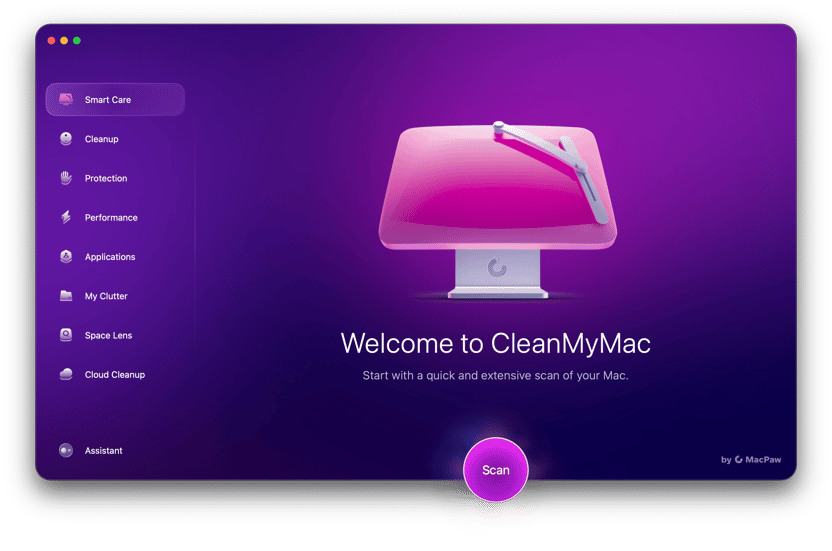If you've been using computers since the late 90s or early 00s, especially PCs, you must remember how scary it was to get a virus. Back then, it seemed like the internet was this Wild West where any computer could get shot down by a virus in the blink of an eye.
Luckily, by now, things have changed, and the hysteria has settled. It's generally acknowledged that if you have one of the industry's top antiviruses installed, you don't have to worry about viruses getting into your life.
Along with "viruses," you've also heard a different term used often — malware. And consequently, there are anti-malware programs, too. Should you use them? Are antivirus and anti-malware the same thing? Let's discuss these questions in detail.
What's better: Anti-malware vs antivirus
As mentioned above, viruses were the true scare of the first decade or so of the World Wide Web. Technically, a virus is a malicious script that, when executed, replicates itself (like, you know, a real virus) and inserts its own code into your software, wreaking havoc. It could steal your personal information, block you from accessing essential data, and much more.
But in the last few years, the development of new viruses has been dramatically reduced, and most of the ones still out there are easy to deal with if you're using an up-to-date antivirus. Cybercrime, however, is as alive as ever — thanks to malware.
Some examples of manipulative tactics used by cybercriminals.
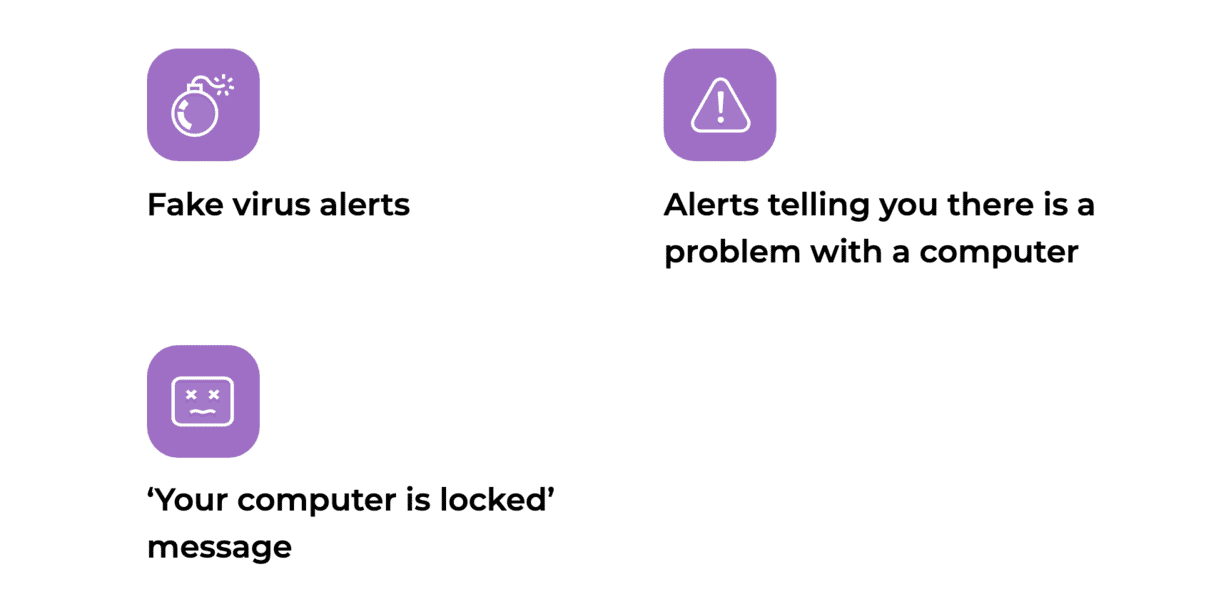
Malware, as opposed to viruses, is an umbrella term that, in fact, incorporates viruses, too, along with worms, spyware, ransomware, adware, trojans, keyloggers, and other malicious software. So, malware is de facto a much more serious threat and is commonly used by today's cybercriminals.
So, if you currently have an antivirus, it should protect you from the most common viruses out there, but it's not likely to save you from a keylogger that's capturing everything you type in (including your passwords). That's why only anti-malware can offer you complete, all-in-one protection.
Malware in Macs vs. PCs
A few words should be said about the difference between Macs and PCs with regard to malware. Since PCs occupy a much larger share of the computer market, most hackers have been developing new viruses specifically for them. It also doesn't help that the architecture of the Windows operating system is much less secure than that of Macs, so Windows users tend to bear all the consequences.
On the other hand, Macs have stayed pretty much virus-free since macOS is designed in a way that makes it hard for external scripts to infiltrate — sandboxed. And with the latest macOS versions, security has been tightened up even more:
- Apple utilizes technologies like XD (execute disable), SIP (system integrity protection), and SLR (address space layout randomization) to prevent processes with root permissions from altering essential system files.
- Gatekeeper ensures that all the apps installed on your Mac come from verified developers and are scanned for known security issues.
- Apple silicon chips protect your passwords, and FileVault 2 encrypts your whole drive keeping all your data safe.
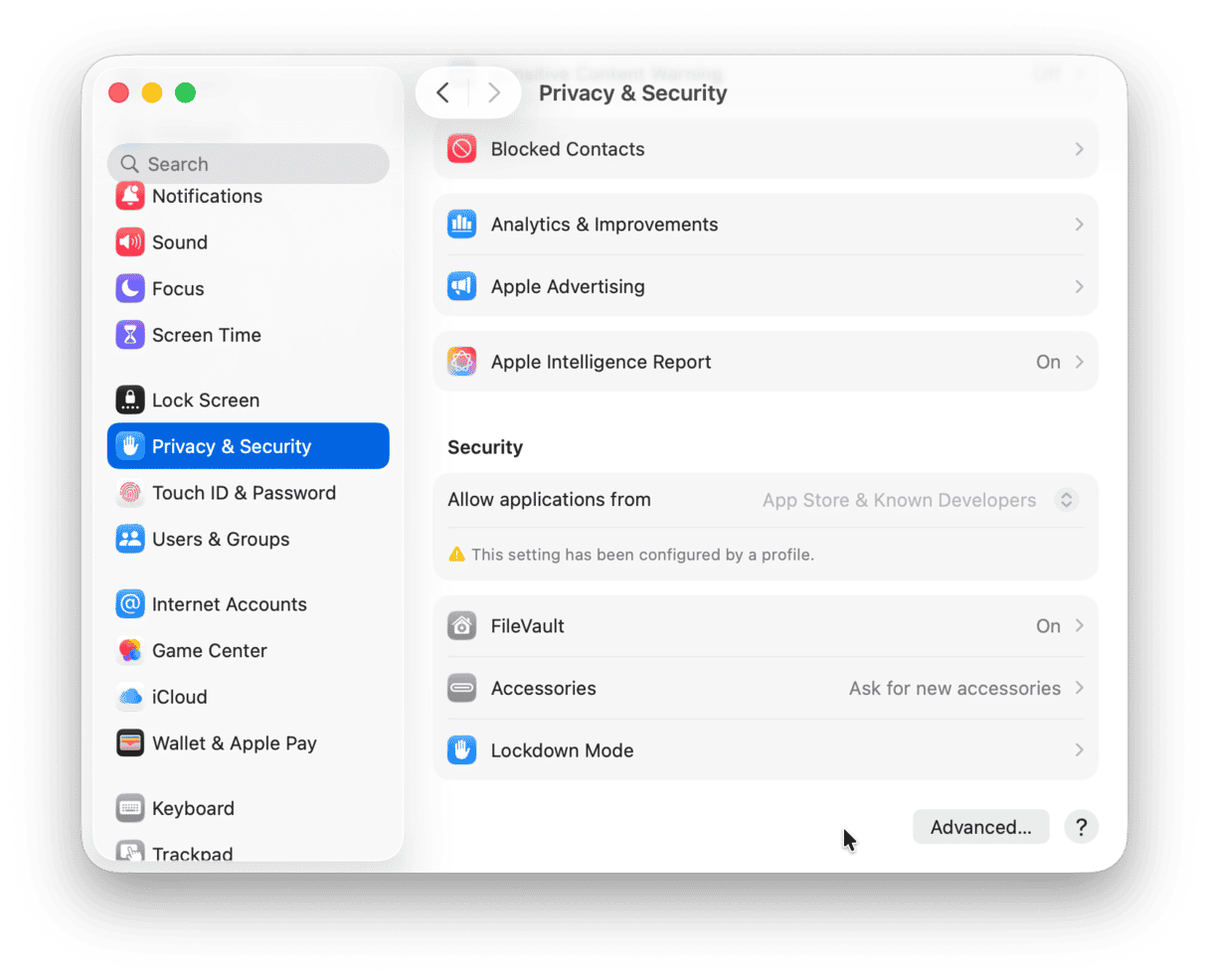
For the anti-malware vs antivirus question, this means that if you're running Windows, you should absolutely try to get both. For Mac users, having the best anti-malware app should suffice.
How to choose the best anti-malware app for Mac?
We know that the difference between antivirus and anti-malware lies in the scope of the targeted issues. The best anti-malware apps are generally multifunctional and offer all kinds of optimizations for your Mac. Take, for example, CleanMyMac, one of the reputable solutions on the market.
CleanMyMac is Mac-specific optimization software that focuses foremost on finding macOS viruses. It's been notarized by Apple, which means its code has been verified as safe.
Like most antiviruses, it performs an in-depth checkup, scanning not only all known security vulnerabilities but also unneeded cache files, neutralizing potential threats, and much more.
To check your drive for adware traces and covert browser agents:
- Get a free trial of the app and open it.
- Navigate to Malware Removal in the sidebar under the Protection tab.
- Click Scan.
- If your system has been affected, remove any malware found.
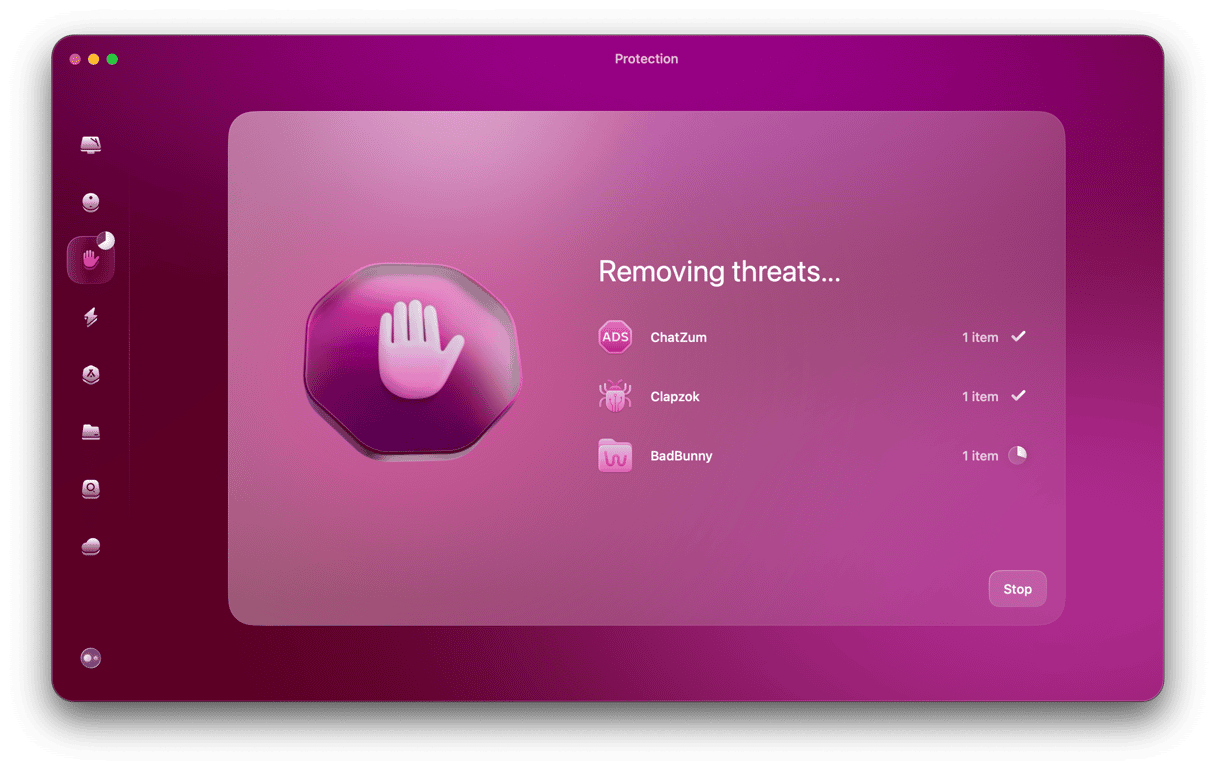
How is it better than other Mac antiviruses? For one, it has a solid database of adware, which contains solutions against the latest adware bots and data-mining apps. Like these ones:
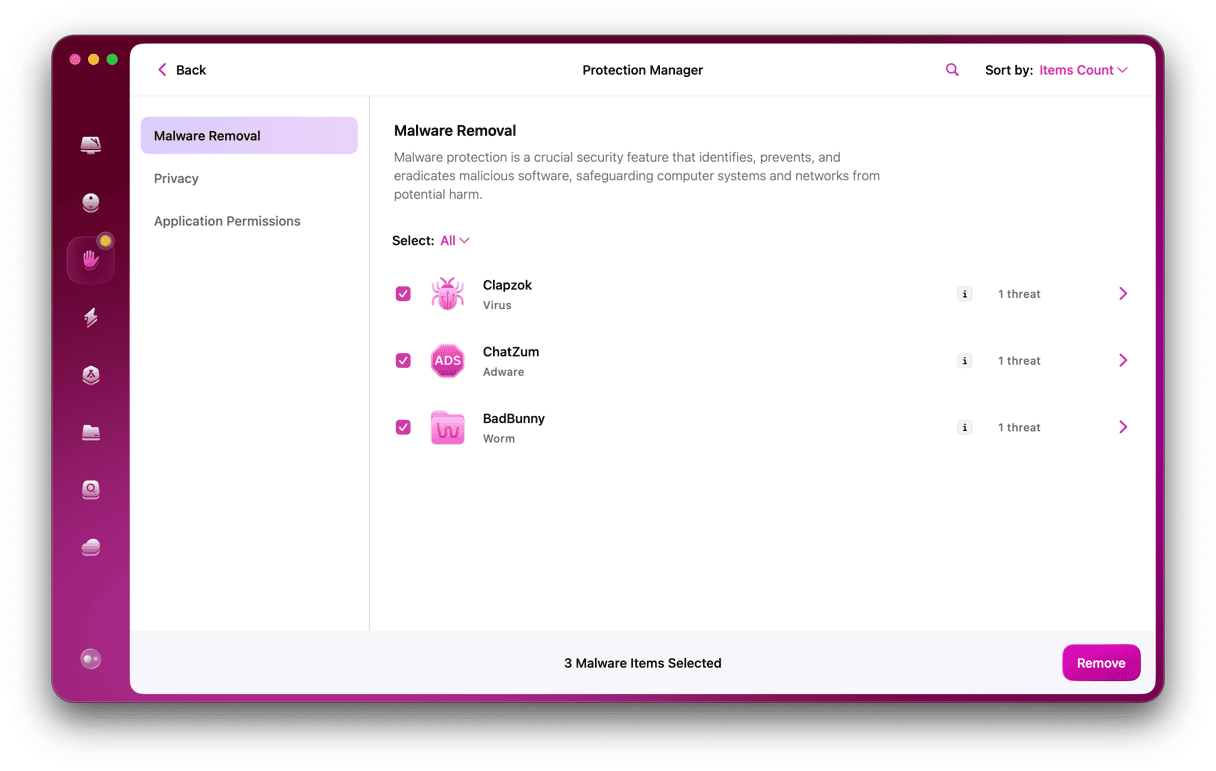
Other benefits of CleanMyMac are also available from the same sidebar: just start a System Junk scan or dissect your Privacy settings in a few clicks to ensure your system overall is as top-notch as it could be.
So, are antivirus and anti-malware the same thing? No, they are not. Sometimes, you might need both; other times, just anti-malware is enough. What's certain is that given recent ransomware, spyware, and adware scandals, it's wise to equip yourself with the best anti-malware app you can get and initiate regular (approx. twice a month) checkups for your macOS. Better safe than sorry!




